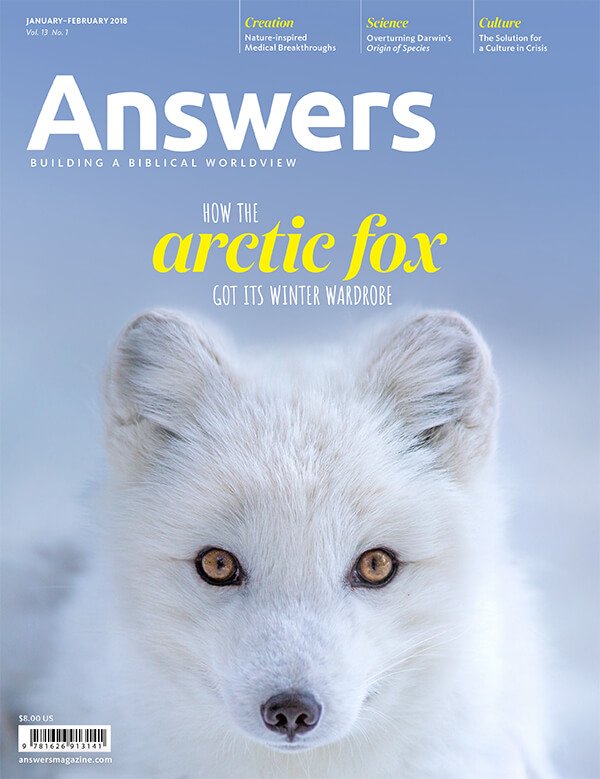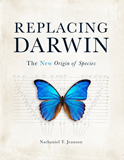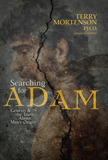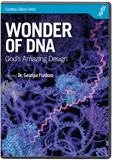The New Origin of Species
Darwin’s Work Is Being Undone by Modern Genetics
A Harvard-trained geneticist shows how new findings have shattered Darwin’s best guesses about the origin of species.
You don’t know what you don’t know. In his time, Charles Darwin sought to fill huge gaps in his knowledge regarding species. And armed primarily with an 1800s education and his two eyes, perhaps Darwin did the best he could—at least the best anyone could who starts out to explain creation without the Creator. Yet Darwin published On the Origin of Species in 1859. Since then, science has exploded astronomically, developing enthralling new fields no one in those pre–Civil War days foresaw. No doubt, a peek at the technology in a twenty-first-century laboratory would have blown Darwin’s mind.
A question arises: Would Darwin maintain his conclusions if he could come back and reexamine newly available data? Dr. Nathaniel T. Jeanson doubts it. Why?
Jeanson explains, “Since 1859, we’ve had time to reevaluate Darwin’s picture. A global community of millions of scientists can pool their resources and build on one another’s work. The cumulative observations of these scientists have built an unprecedented body of knowledge on the diversity and operation of life.”
In other words, today’s men and women of science can scrutinize more biological data than Darwin ever imagined. In fact, in Jeanson’s revolutionary book, Replacing Darwin: The New Origin of Species, he argues that today’s ocean of new knowledge has overwritten Darwin’s explanations for the origin of species. One of Jeanson’s goals for writing Replacing Darwin is to point evolutionists to fresh, eye-opening research.
“The heart of the book is Part III, where I walk through modern genetic data, a lot of the research I’ve done over the past eight years.” At this point, he declares, the argument transforms as the genetic data—in agreement with the Bible—suggests earth’s age to be thousands of years, not millions.
But wait. Before discussing Replacing Darwin and the book’s revelations, readers will want to know, who exactly is Nathaniel T. Jeanson? What are his background, his credentials, and his grounds for challenging a historical figure no less revered than Charles Darwin? Excellent questions. Let’s find out.
Upbringing and Education
Jeanson says he was born into a Christian family, where he was homeschooled in earlier days, then attended a Christian high school. Because chemistry and disease research intrigued him, when he enrolled at the University of Wisconsin–Parkside, Jeanson studied molecular biology. In 2003, he graduated with a bachelor’s degree in molecular biology and bioinformatics.

Nathaniel T. Jeanson, author of the new book, Replacing Darwin: The New Origin of Species
After Wisconsin, Jeanson continued his education at Harvard Medical School, where he pursued an interest in cancer research. Why Harvard?
When I applied to PhD programs, my goal was to do cancer research, and in applying to schools, I cast a fairly broad net. From California to New York, from Texas to Illinois, I focused on schools that either offered PhD programs in cancer biology or had PhD programs that were affiliated with cancer institutes. Since the Dana-Farber Cancer Institute was affiliated with the Harvard PhD program, Harvard fell into the second category of programs in which I was interested.
“In the back of my mind, I wondered if a Harvard PhD might be useful someday for apologetic purposes.”
Ultimately, several programs accepted Jeanson, but his mind gravitated to Harvard. “I kept asking myself, ‘What would I say to myself in ten years if I knowingly turned down acceptance into Harvard?’ Harvard seemed like an opportunity that was too good to pass up. Also, in the back of my mind, I wondered if a Harvard PhD might be useful someday for apologetic purposes.”
At Harvard, Jeanson worked in the stem cell laboratory using adult stem cells. In 2009, he graduated with a PhD in cell and developmental biology.
One might expect a creationist in such academic environments to lock horns with evolutionist peers or professors quite quickly. Yet Jeanson says that wasn’t the case. “Because I did my undergraduate degree in molecular biology and my graduate degree in cell and developmental biology, I was able to steer clear of most origins controversies.”
Jeanson affirms that a program that deals heavily with origins—zoology, geology, or paleontology—would have presented many more challenges with frequent references to evolution and millions of years.
Still, Biology 101 and 102 definitely taught evolution. Such classes discuss all of biology, including the history, classification, and evolution of life. “In these classes, I learned what the evolutionary professors taught, gave them the answers that they expected on tests, and then made notes on the tests and assignments indicating that I didn’t agree with what they wanted me to learn. The professors didn’t like that I disagreed, but they never docked points from my grade for my creationist views.”
Consideration for fellow students also affected Jeanson’s classroom demeanor: “I respectfully tried to raise challenging questions in class on occasion, while being mindful that students were paying the professors, not me, and wouldn’t want me to dominate class time.”
However, Jeanson never hid his Bible-based views. “Because I grew up in a creationist home and was taught creation and evolution from early on, I was well prepared for all that my classmates (and professors) brought my way. I don’t remember ever being surprised by evolutionary evidences— because of the diligent training that I received in homeschool, at my young-earth creation Christian high school, and through the creationist seminars I attended and books that I read.”
A Change of Heart
Life at Harvard was proceeding smoothly, and Jeanson realized a Harvard degree promised a lucrative future. In fact, only slightly tongue-in-cheek, he says, “Going into graduate school, my goals were ambitious: Obtain a PhD, do postdoctoral research, secure my own academic research lab, cure cancer, win the Nobel Prize, and then have a platform on which to preach the gospel!”
However, as a maturing follower of Christ, Jeanson became aware that his personal motivation was contaminated by selfish ambition. “I discovered that I was trying to run people over with my own research ideas, effectively attempting to elbow my way to the top in a reckless and aggressive manner that sought only my own advancement and prominence. It took several years into my graduate training to recognize this fact, but once I recognized it, my ambitions changed.” Thus began a period of soul-searching. Jeanson pondered how he could use his training for eternally significant goals rather than self-satisfying dreams. For a while he considered bivocational ministry, using scientific knowledge to enter a restricted-access country as a missionary. He even contemplated dropping science and entering seminary.
In the end, he says, the Lord blocked both directions. “I now recognize my lack of pastoral gifting, and full-time missions work or seminary training would probably not have been productive in the long term.” So Jeanson stuck to scientific research, the discipline for which God had gifted him, instead of entering ministry, a role for which he has much respect but no gift.
Before graduating with his PhD, he sent his résumé to the Institute for Creation Research. Might ICR be the niche where Jeanson could combine scientific training with Christian ministry? ICR responded immediately. Jeanson spent six years there before moving to Kentucky with his wife Susanna and their children to join Answers in Genesis as a research biologist.
Challenging Darwin
Of course, being a young-earth creationist, Jeanson would disagree with Darwin’s On the Origin of Species. But amassing recently available evidence and compiling a book to replace Darwin’s conclusions with newer knowledge would be time-consuming, bold—even audacious. Why do it?
Jeanson says, “Since 1859, three scientific developments have quietly overturned Darwin’s views on the origin of species. Yet you can’t find a book that puts these three developments in one spot and logically connects them to one another. I wanted a resource that would comprehensively address the creation-evolution debate on this central question.”
Still, the world remembers Darwin as the iconic researcher with white hair and beard. Is a scientist with fewer than 40 years under his belt presumptuous in challenging On the Origin of Species with fresh findings?
“I’m cautiously optimistic that my youth might be an advantage in seeing wider acceptance of the conclusions in Replacing Darwin. I draw my inspiration from Darwin himself.”
How so?
In publishing Replacing Darwin, I know I’m challenging the scientific views of 97–99% of the professional scientific community. When Darwin wrote On the Origin of Species, he challenged the scientific consensus as well. Darwin remarked, ‘Why, it may be asked, have all the most eminent living naturalists and geologists rejected [my] view?’ He answered his own rhetorical question in four ways, one of which explicitly dealt with the youth-age element of the debate: ‘I by no means expect to convince experienced naturalists whose minds are stocked with a multitude of facts all viewed, during a long course of years, from a point of view directly opposite to mine.’ Instead, ‘I look with confidence to the future, to young and rising naturalists, who will be able to view both sides of the question with impartiality.’
So, from Jeanson’s perspective, the fact that he’s nowhere near elderly might help in reaching today’s “young and rising naturalists, who will be able to view both sides of the question with impartiality” (as much as possible, given their own built-in biases).
How Could Darwin Err?
Okay, so what if Darwin used old-fashioned, pre–Civil War methods? He was a diligent observer. What could go wrong? According to Jeanson, a number of things. Here’s one.
Since species are defined by traits, the question of the origin of species is a question of the origin of traits. However, since traits must be inherited from generation to generation in order to constitute a species, the question of the origin of species is, ultimately, a question of the origin of heritable traits. The field of science concerned with inheritance is the field of genetics. Consequently, the question of the origin of species is, ultimately, a question of genetics.
Didn’t Darwin examine genetic data?
“The field of science concerned with inheritance is the field of genetics. Consequently, the question of the origin of species is, ultimately, a question of genetics.”
Hardly, Jeanson explains. “In 1859, genetics wasn’t even a field of science. The term genetics wasn’t invented until after the turn of the century. The molecule that we know now as the substance of heredity, DNA, wasn’t recognized as such until nearly 100 years after Darwin wrote On the Origin of Species. The DNA information, the genomes, from species was not uncovered until now. In other words, when Darwin proposed an answer to the question of the origin of species, he did so nearly a century and a half before any scientist would possess the only direct scientific data with which to answer it. Darwin took a massive scientific risk.”
Still, risk or no risk, Darwin observed plenty of nature firsthand, and his power of inductive reasoning proved quite persuasive, right?
Again, Jeanson is quick to comment. “The inherent danger in the process of inductive reasoning (trying to derive general principles from specific examples) is the finiteness of mankind. Despite our best efforts, it’s nearly impossible to identify all potential answers to a question. In addition, some new answers arise with time. Consequently, the process of inductive reasoning is inherently limited and time-bound.”
Going back to the topic of genetics, Jeanson grows excited by new findings. He says,
Now that we finally have DNA evidence by which to directly investigate the origin of species and to evaluate Darwin’s risk, the results have been spectacular. The discoveries that we’ve made have been so incredible that they completely reverse the tables on the debate over the origin of species.
For example, for many years, evolutionists accused creationists of being unscientific. Their complaint was that creationists do not make scientifically testable predictions about the origin of species. With modern genetics in hand, creationists now do. In fact, they’re making better testable predictions than evolutionists are. As if this weren’t enough, these predictions happen to be in the realm of genetic mutations—the very arena in which evolution is supposed to operate (see below). Creationists aren’t just rebutting Darwin’s ideas; they’re completely replacing them.
If Jeanson is correct, that single discovery doesn’t simply challenge Darwin’s opinions—it’s a bombshell in the midst of them.
In other words, Jeanson’s book says, “Here’s where evolution has gone astray. And here’s a model that makes better, testable predictions”—which is the gold standard of science. But can we get a hint concerning the significance of recent genetic findings?
In a nutshell, modern genetics is answering the questions of how species form, from whom species form, and when species form. Jeanson says, “Evolution postulates that all species arose over millions of years from a common ancestor. In contrast, recent genetic data indicate that species arose from a whole slew of ancestors that lived just a few thousand years ago. This is consistent with Genesis, which teaches that God supernaturally created ‘kinds’ of creatures—the progenitors to modern species—a few thousand years ago.”
New Genetic Findings Match Biblical Predictions

Before we knew about genetics, Darwin proposed that all creatures developed from a common ancestor via small changes over a long time. But new findings in the field of genetics tell a different story.
Figure 1 shows that the Bible’s timeframe (6,000 years) correctly predicts the total number of genetic mutations that we have discovered in human mitochondrial DNA (a tiny string of DNA in the cell’s “energy factory”).
If humans have been around for 6,000 years, the number should be 80. If they have been around 200,000 years or more, as evolutionists claim, the number would be over 470. The number is around 80. This same amazing pattern occurs in other creatures, not just humans.
When we graph all these differences in human mitochondrial DNA, we discover that the human family divides into three different groups (see green dots in Figure 2). This is just what we would expect if all humans came from three women who got off Noah’s ark just a few thousand years ago.
Read that again. If Jeanson is correct, that single discovery doesn’t simply challenge Darwin’s opinions—it’s a bombshell in the midst of them. Jeanson continues,
The biggest genetic question in these discussions is the question of the source of genetic variety—DNA differences among species. Evolution assumes that all genetic differences are the result of DNA copying errors, or mutations. My book documents four independent lines of evidence that indicate the vast majority of DNA differences were present in the first progenitors in hidden, or genetically silent, form. This fact profoundly alters how we understand the origin of species.
Without doubt, Jeanson’s Replacing Darwin: A New Origin of Species will ignite controversy. Yet if this fresh data does, indeed, persuade “young and rising naturalists” that Darwin strayed in his conclusions, perhaps this generation shouldn’t judge the old boy too harshly. After all, at least when it comes to genetics, Darwin simply didn’t know what he didn’t know.
Related Downloads
Replacing Darwin, Chapter One
PDF DownloadAnswers Magazine
January–February 2018
When winter arrives, this fox puts on his new wardrobe just for the ocassion.
Browse Issue SubscribeRecommended Resources

Answers in Genesis is an apologetics ministry, dedicated to helping Christians defend their faith and proclaim the good news of Jesus Christ.
- Customer Service 800.778.3390
- © 2024 Answers in Genesis







